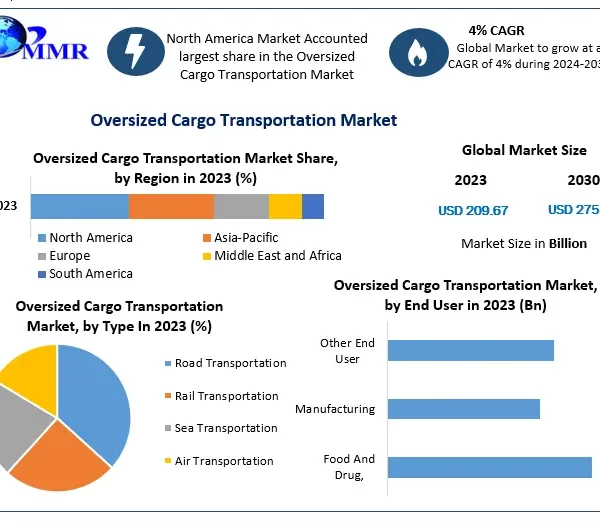
In today’s rapidly evolving business landscape, where knowledge and skills are the currency of success, the market has emerged as a game-changer. As organizations strive to cultivate a highly competent and adaptive workforce, the integration of digital learning solutions has become an imperative. In this blog, we delve into the corporate eLearning market, exploring its size, growth trajectory, and the driving forces shaping its future from the perspectives of market analysts, forecasters, economists, and industry experts.
Corporate E-Learning Market Overview
The market encompasses a wide range of digital learning solutions designed to enhance employee knowledge, skills, and professional development. These solutions include online courses, virtual classrooms, mobile learning applications, interactive simulations, and learning management systems (LMS). These solutions empower organizations to deliver training programs efficiently, track progress, and foster a culture of continuous learning within their workforce.
According to a recent report, the global corporate eLearning market was valued at $38.07 billion in 2020 and is projected to reach $84.09 billion by 2026, exhibiting a robust compound annual growth rate (CAGR) of 14.2% during the forecast period. This impressive growth can be attributed to several driving factors, including the increasing adoption of remote and hybrid work models, the need for cost-effective and scalable training solutions, and the integration of advanced technologies such as artificial intelligence (AI) and virtual reality (VR) in corporate learning programs.
Regional Dynamics
The market exhibits diverse regional dynamics, reflecting varying adoption rates, technological infrastructures, and organizational priorities. Let’s explore some critical regional insights:
- North America: The North American corporate e learning market, led by the United States and Canada, is a frontrunner in embracing digital learning solutions. The region accounted for approximately 38% of the global market share in 2020, driven by factors such as a highly skilled workforce, advanced technological infrastructure, and a strong emphasis on employee development.
- Europe: With a focus on continuous professional development and a growing remote workforce, the European corporate eLearning market is witnessing significant growth. Countries like the United Kingdom, Germany, and France are leading the way in adopting innovative eLearning solutions, contributing to the region’s market share of around 27% in 2020.
- Asia-Pacific: The Asia-Pacific region is emerging as a hotbed for corporate eLearning adoption, fueled by rapid digitalization, a burgeoning workforce, and a commitment to upskilling and reskilling initiatives. Countries like China, India, and Japan are driving the region’s market share, which stood at approximately 25% in 2020.
- Latin America, Middle East, and Africa: While these regions have faced challenges in terms of technological infrastructure and funding, they are witnessing a surge in corporate eLearning adoption due to the increasing recognition of its benefits and the availability of cost-effective solutions. The combined market share of these regions was around 10% in 2020, with significant growth potential in the coming years.
Driving Factors and Trends
Several key factors and trends are shaping the trajectory of the market:
- Remote and Hybrid Work Models: The COVID-19 pandemic has accelerated the adoption of remote and hybrid work models, necessitating the need for efficient and flexible learning solutions. Corporate eLearning platforms have become indispensable for organizations to provide training and upskilling opportunities to their globally dispersed workforce.
- Personalized and Adaptive Learning: With the integration of AI and machine learning algorithms, corporate eLearning solutions are becoming increasingly personalized and adaptive. Learner preferences, skill levels, and performance data are used to tailor content and learning paths, enhancing engagement and retention.
- Microlearning and Bite-sized Content: Corporate eLearning platforms now use short lessons and videos. This helps people learn quickly and easily, fitting into their busy lives.
- Mobile Learning (mLearning): The proliferation of mobile devices has paved the way for mobile learning (mLearning) solutions, enabling learners to access training materials anytime, anywhere. Mobile apps and responsive course designs are becoming essential components of corporate eLearning strategies.
- Virtual and Augmented Reality (VR/AR): Immersive technologies like VR and AR are revolutionizing corporate training, particularly in industries such as manufacturing, healthcare, and engineering. These technologies provide realistic simulations and hands-on virtual experiences, enhancing learning retention and skills development.
- Learning Analytics and Data-driven Insights: Corporate eLearning platforms are leveraging advanced analytics and reporting capabilities to track learner progress, identify skill gaps, and measure the effectiveness of training programs. These data-driven insights inform strategic decisions and optimize learning outcomes.
Challenges and Opportunities
While the corporate e learning market presents numerous growth opportunities, it also has its challenges. Factors such as cybersecurity concerns, the digital divide, and resistance to change can hinder adoption and implementation. However, these challenges also present opportunities for innovation and collaboration among stakeholders.
Robust cybersecurity measures, initiatives to bridge the digital divide, and effective change management strategies can help mitigate these challenges and unlock corporate eLearning’s full potential. Additionally, the integration of emerging technologies like blockchain for secure credential management and the metaverse for immersive learning experiences presents exciting avenues for further growth and disruption in the corporate eLearning market.
Conclusion
The corporate e-learning market is poised for remarkable growth, driven by the need for agile, cost-effective, and scalable workforce development solutions. As organizations navigate the complexities of a rapidly changing business landscape, investing in digital learning strategies has become imperative for cultivating a skilled and adaptable workforce.
The corporate eLearning market holds the key to unlocking the full potential of human capital by embracing innovative technologies, fostering a culture of continuous learning, and leveraging data-driven insights. As market analysts, forecasters, economists, and industry experts, it is our responsibility to stay attuned to these trends and provide valuable insights to organizations seeking to gain a competitive edge through strategic investments in corporate eLearning solutions.
Read More Blogs: https://emperiortech.com/









